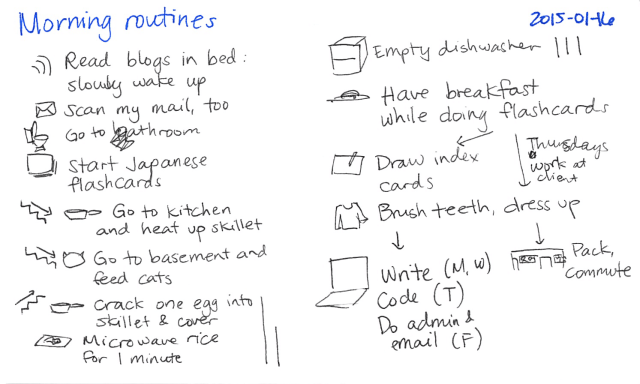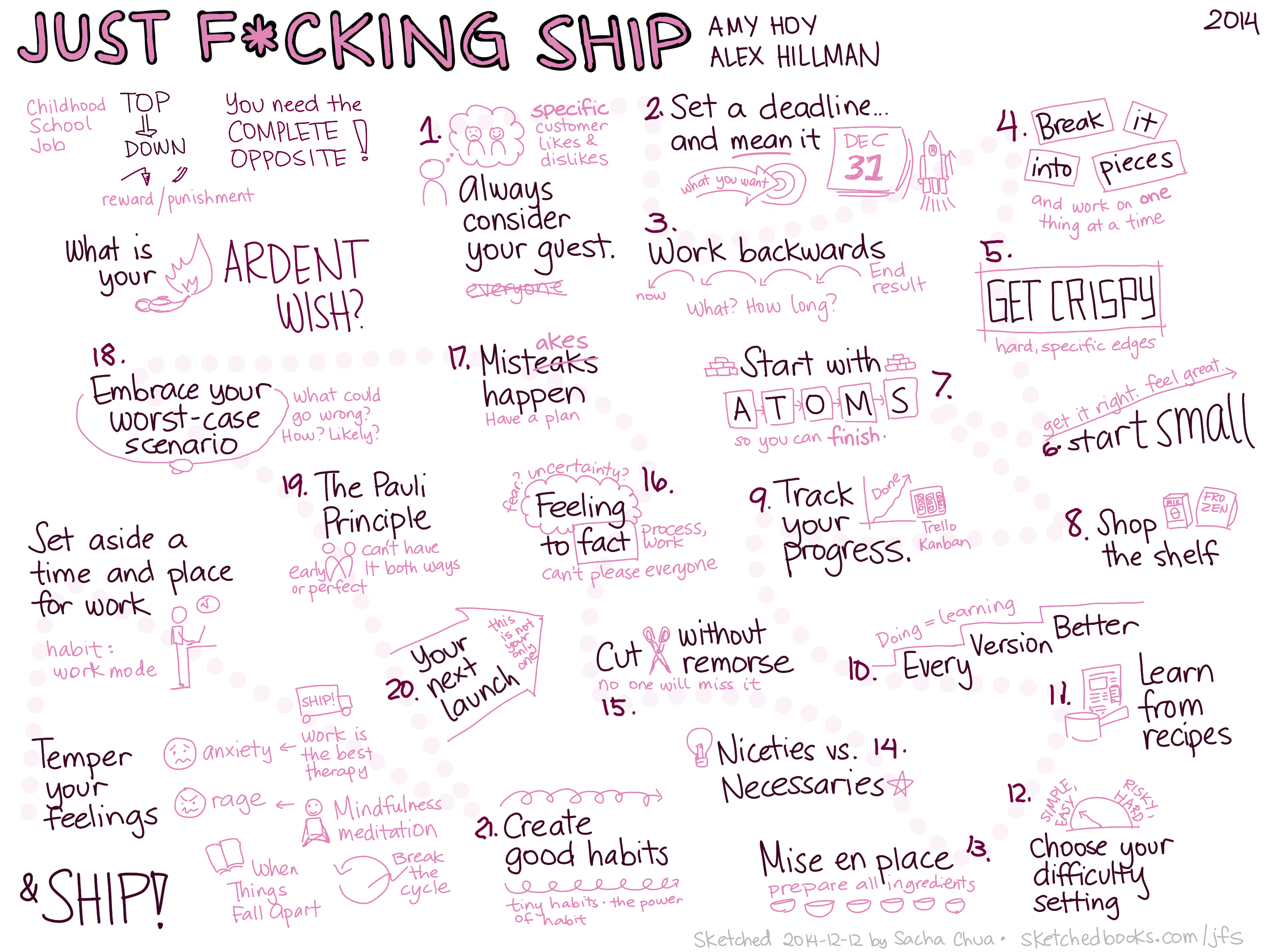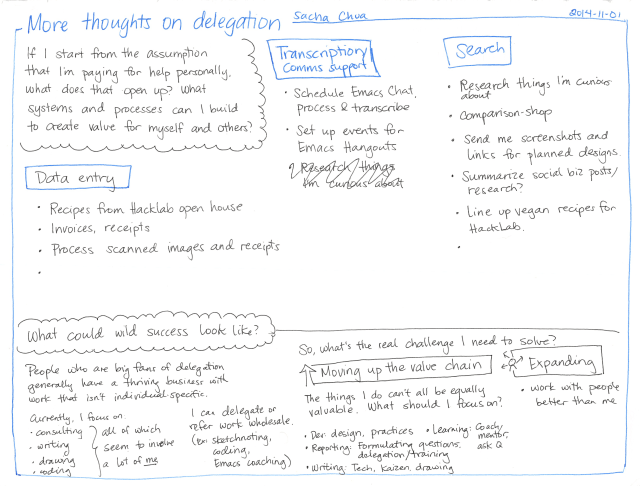Relaxed routines
Posted: - Modified: | experiment, productivityI do a lot of things that productivity books and blogs tell you that you shouldn't do, and I don't do a lot of the things they prescribe. I wake up late. I read e-mail, but I don't respond to it for a week or two. I go for variety instead of focus. I don't try to motivate myself to reach time-bound goals or follow pre-set plans. Instead, I figure out what I want to do at the moment, and I go and do that.
What does that look like, day-to-day? Here's what a typical day might be:
I wake up at around 8 or 9 after an average of 8.3 hours of sleep (although in November, the average was much higher). I stay in bed another twenty minutes or so, easing myself into wakefulness. During this time, I might do a quick scan of blog posts, Hacker News, Reddit, Facebook, and my e-mail. Sometimes I think of a few ideas I would like to explore that day, and I type that into Evernote on my phone so that I don't forget.
Eventually, I leave the warmth of the duvet, slip into a fuzzy bathrobe, and head downstairs for breakfast. I feed the cats, too. After breakfast, I head back upstairs to brush my teeth and take care of other morning routines. I return to the kitchen (often still in pajamas), open my computer, and think: What do I want to think about today? What do I want to learn about? I look at my lists and outlines for ideas.
Depending on what I feel like doing, I might spend some time programming or writing. If I don't feel particularly creative, I might read instead. I review my Org Mode agenda in Emacs to see what I need to take care of today, and I check my other lists for unscheduled tasks that might be good to do too. I keep my notes in large, lightly-structured text files so that I always have something to work on.
Here's the important part of my routine, I think: I'm almost always taking notes. I keep a text file open on my computer as I program or debug, writing down the things I'm considering or where I'm getting stuck. I write, and I write about writing. Even when I'm away from my computer, I try to write brief notes on my phone.
People often think that taking notes takes too much time and slows you down. I find that notes help you cover more ground. When I don't take notes, I get frustrated because I can feel my brain trying to jump from one topic to another too quickly. I forget. I have to figure things out again. Notes help me a lot. They don't even have to be complete notes. Sometimes a phrase or two is enough to help me get back from interruptions or pick up loose threads.
I publish as many of my notes as I can. They often help other people, and I get to learn even more from the conversations on my blog. Publishing my notes also makes them easier to back up and search.
Back to my daily routines. At some point in the afternoon, I might respond to e-mail. I usually try to do this at least once a week, although sometimes I let it slip for longer. Sometimes I nap or take a break. Then I check in with myself again: What do I feel like working on now? There's often a little time to get another chunk done before dinner.
We go to the library and the supermarket a few times each week. Sometimes we cook; sometimes we have left-overs. Evenings are for tidying up, taking care of things, and relaxing. Sometimes I read books I've borrowed from the library, or spend some more time writing, or play video games, or practise sketching.
When I go to bed, I catch up with W- and then read a little: often something unproductive but fun, like fanfiction with a rational bent.
After we turn out the lights, I wrap up by thinking a little about how I would like the next day to turn out: What do I need to do? What do I want to learn? What would make things even better? I dream my way into the next day.
I think I do less than many people do. I feel like I live at a more relaxed pace. Still, my weekly reviews show me more crossed-off tasks than I expected. My monthly reviews show that I keep moving forward on my plans. Whenever I do my annual reviews, I can see some difference between the past and the present. So maybe it's not that I'm particularly efficient at doing things, but I'm good at keeping track of the progress.
I share my time data publicly, so if you're curious, you can dig into it and find out more about what a typical day is like.
I don't think I have any awesome productivity secrets. I live on the same 24 hours as everyone else. But I enjoy asking questions, taking notes, looking for opportunities for little improvements, and sharing what I learn along the way, and I think that's what people respond to. If I can do this with a fairly relaxed pace, you can probably do something similar with your life too. =)
Related:
- Predictable advice about productivity (the backstory for this blog post)
- When you feel like you're spending a lot of time on low-impact activities



